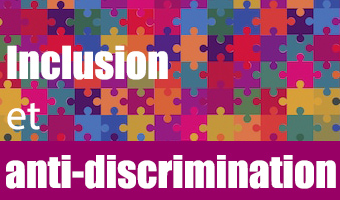The Council of Europe organised on 28 and 29 October a seminar on “Combating sexist advertising: learning from practice” which provided a platform for participants from the member States of the Council of Europe to share practices on combating sexist advertising and the role of equality bodies in this field. This seminar gathered over 70 representatives of equality bodies, representatives of public institutions with competences to review media and advertising, self-regulatory bodies in the field of advertising, civil society organisations, gender experts, media, Academia, international institutions, development partners, etc.
The seminar had the following objectives:
- Increase the understanding of participants about sexist advertising and how to assess it
- Provide space for sharing of challenges from the national level and of the responses to this issue
- Engage participants in discussing ways in which different national entities, and equality bodies, can combat sexist advertising as part of fighting against discrimination.
Program of the seminar:
28 October 2021
9.30 Opening session
Welcome words by:
Angela LONGO, Anti-Discrimination Department, Council of Europe
Lina NILSSON, DG NEAR, European Commission
10.10 Council of Europe’s work achieving gender equality and combating sexism
Input by Cécile GREBOVAL, Gender Equality Division, Council of Europe Link to the presentation
10.40 Sexist advertising as a form of gender-based discrimination and its harmful effects on gender equality
Input by Elena RATOI, Council of Europe expert Link to the presentation
11.00 Break
11.15 Addressing sexist advertising: the line between freedom of speech and gender discrimination
Input by Eva-Maria SVENSSON, Deputy head, Law, University of Gothenburg Link to the presentation
12.00 The role of equality bodies in combating sexist advertising
Inputs by:
Yan FELDMAN, Council for Preventing and Eliminating Discrimination and Ensuring Equality, Republic of Moldova
Ekaterine SKHILADZE, Public Defender’s Office, Georgia
13.00 Closing of the first day
29 October 2021
9.30 Opening of the programme
9.40 Presentation of the Guidelines “Combating sexist advertising: the role of equality bodies”
Input by Elena RATOI, Council of Europe expert Link to the presentation
10.10 The role of self-regulatory mechanisms in combating sexist advertising
Inputs by:
Irina LYLYK/ Elena DAVLIKANOVA/Elena BUCHINSKAYA, the Industrial Gender Committee on Advertising, Ukraine
Elisabeth TROTZIG, Reklamombudsmannen, Sweden Link to the presentation
11.00 Break
11.15 Media regulatory institutions and civil society as actors in preventing sexist advertising
Inputs by:
Sašo BOGDANOVSKI, Agency for Audio and Audio-Visual Media Services, North Macedonia
Tatiana ISAEVA, Center for Gender Culture, Ukraine Link to the presentation
12.30 Conclusions and closing
Background information
Achieving gender equality is central to the fulfilment of the Council of Europe’s mission: safeguarding human rights, upholding democracy and preserving the rule of law. Despite the fact that gender inequalities affect every person’s life, women have faced more discriminations and limitations because of their gender. Although significant progress has been achieved over the last decades, many challenges still remain: women continue to be underrepresented at all levels of decision making, globally women are paid less than men for the same jobs, women and girls continue to experience various types of violence, gender norms which dictate behaviours for women and men, gender stereotypes remain pervasive and negatively impact the lives of all people, many countries still have discriminatory or gender blind legislation, and so on.
Media and advertising play an essential role in shaping the perceptions, social attitudes, values and behaviours, including in relation to gender equality. This is one of the reasons why the Council of Europe adopted numerous recommendations and resolutions, urging its member States to undertake measures to ensure a balanced and decent portrayal of all genders in media and advertising. In this respect, the Council of Europe Convention on preventing and combating violence against women and domestic violence stipulates that Parties shall take necessary steps to promote gender equality principles in the media and to encourage private sector and media, along others, to participate in the elaboration and implementation of policies and to set guidelines and self-regulatory standards to prevent violence against women and to enhance respect for their dignity.
The way women are depicted by advertising could seriously harm women’s human rights, by denigrating their image and dignity, objectifying them, and reinforcing gender stereotypes. While women are featured more by sexist advertising, men also face stereotypical portrayal, which can reinforce gender inequalities, promote toxic masculinity and distort the way gender equality and violence against women are perceived. Sexist advertising is a manifestation of gender discrimination, as it contributes to perpetuation of gender stereotypes in society through the promoted images and messages, and it perpetuates the inferiority and submission of one gender to another. Gender stereotypical advertising reinforces gender norms, presents them as a normality and thus contributes to maintaining the current status-quo which causes gender inequalities.
In March 2018, the Council of Europe adopted its Gender Equality Strategy 2018 – 2023, which builds upon the vast legal and policy acquis of the Council of Europe as regards gender equality, as well as the achievements of the first such strategy. The new Strategy outlines the goals and priorities of the Council of Europe on gender equality for the years 2018-2023, identifying working methods and main partners, as well as the measures required to increase the visibility of results. Among the six areas of focus of the Strategy, preventing and combating gender stereotypes and sexism is included.
An important breakthrough occurred in 2019, when the Council of Europe adopted the Recommendation CM/Rec(2019)1 on preventing and combating sexism, which is the first international document providing the definition of sexism and urging member States to adopt relevant measures to combat it, including in advertising.
In 2019, the Council of Europe started the implementation of the Regional Project “Strengthening access to justice for victims of discrimination, hate crime and hate speech in the Eastern Partnership”, funded by European Union and the Council of Europe and implemented by the Council of Europe as part of the Partnership for Good Governance phase II. The main goal of the project is to strengthen access to justice for victims of discrimination, hate crime and hate speech through non-judicial redress mechanisms in Eastern Partnership countries. Within the project, the Council of Europe supported the development of guidelines on the role of equality bodies in combating sexist advertising- a measure resulting from the Recommendation CM/Rec(2019)1-, aimed at encouraging action on sexist advertisement. Within the project, gender mainstreaming has been integrated, with the gender dimension as key consideration in the fight against discrimination. In relation to the problem of sexist advertising in the Eastern Partnership countries, while the problem persists, initiatives to combat sexist advertising are not uniform. National legislative frameworks differ, as well as the roles played by equality bodies, Ombudsoffices and media regulatory entities. A discussion among project beneficiaries from the Eastern Partnership countries and beyond in relation to the role of non-judicial mechanisms for combating sexism in advertising has been identified as needed, also in order to reinforce the understanding of the need to consider sexism and its specific form of sexist advertising among the issues equality bodies and other entities need to address in combating discrimination.
This activity was organised in the framework of the project “Strengthening access to justice for victims of discrimination, hate crime and hate speech in the Eastern Partnership”, funded by the European Union and the Council of Europe and implemented by the Council of Europe in the framework of the Partnership for Good Governance Programme (PGG II).




